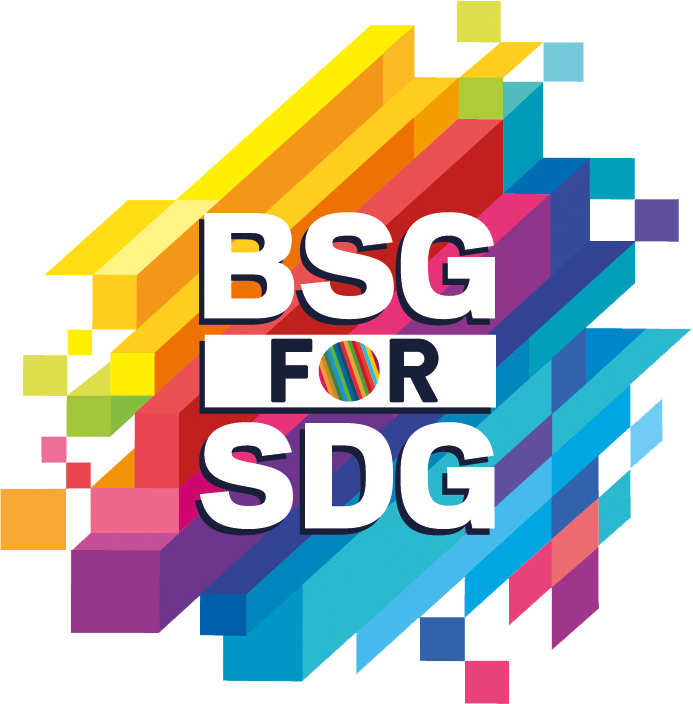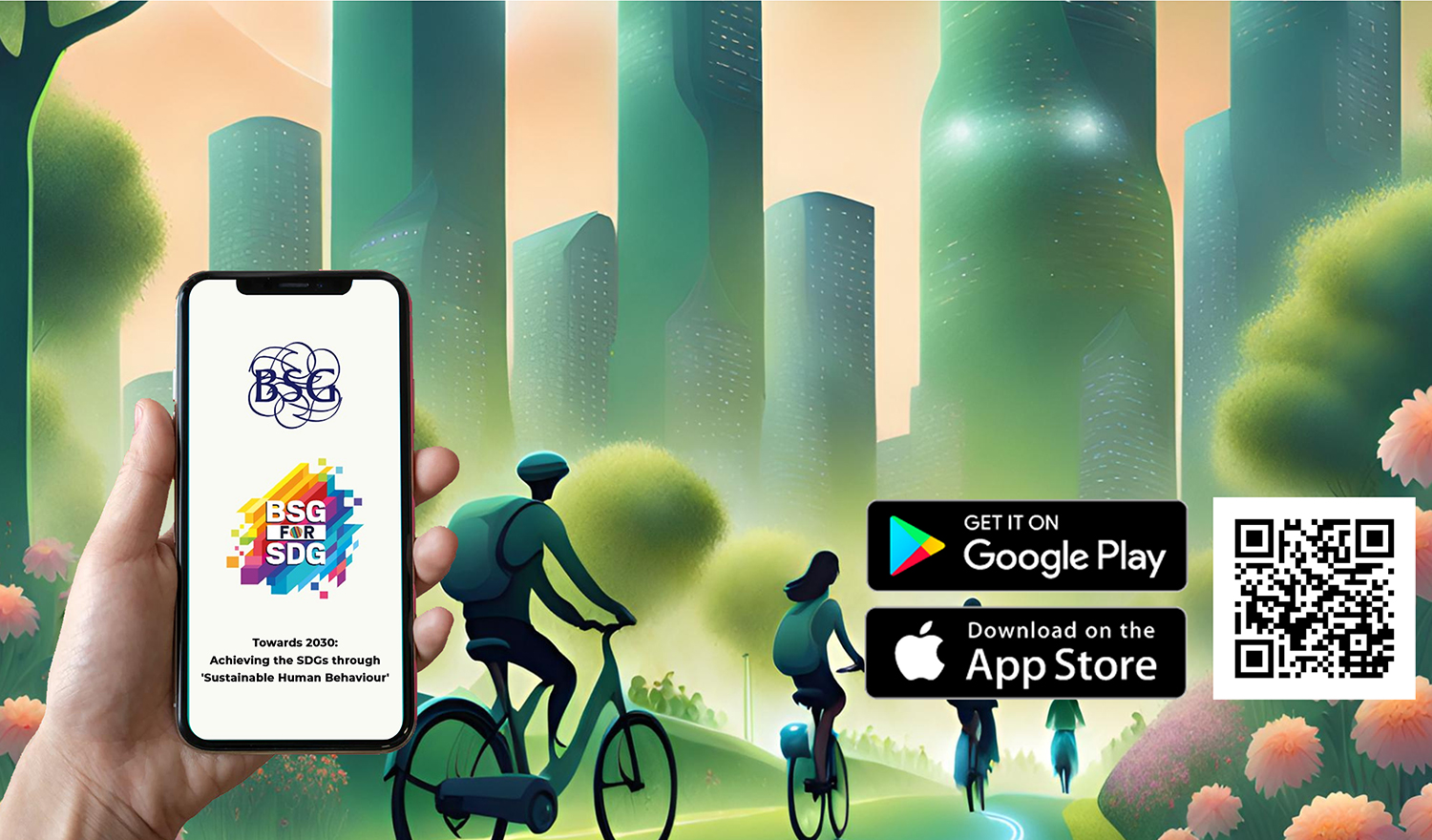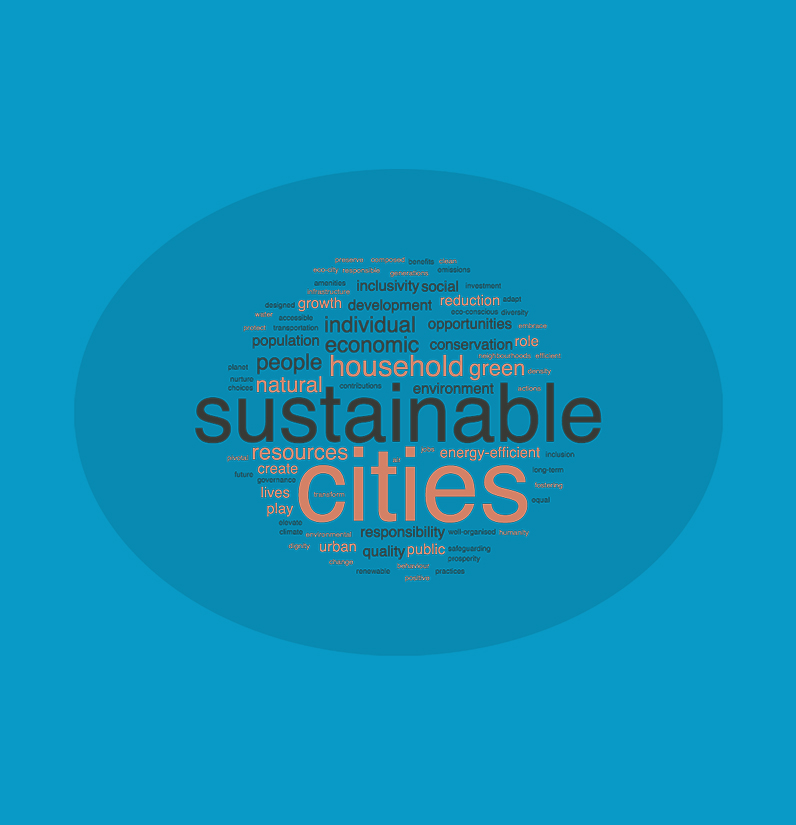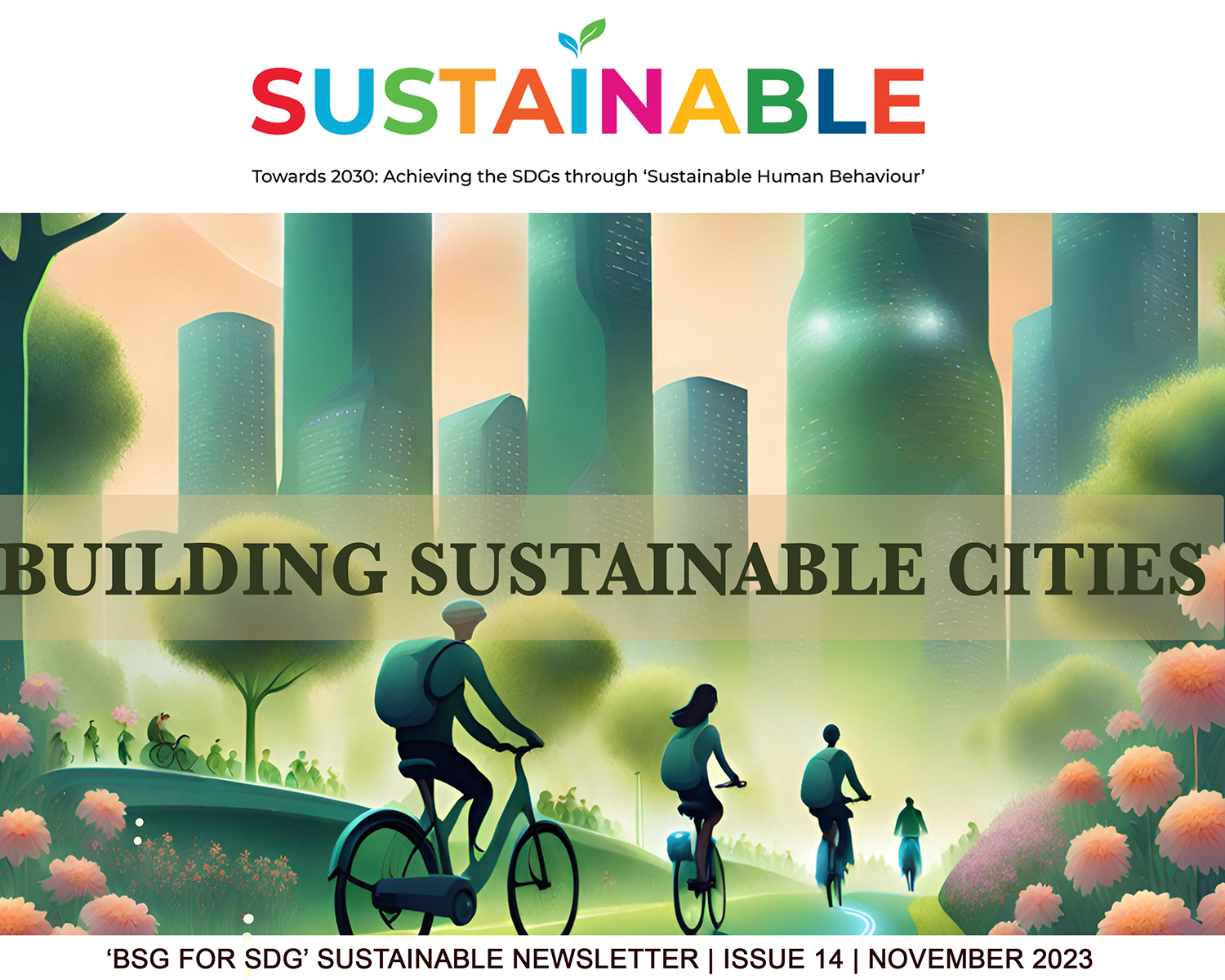
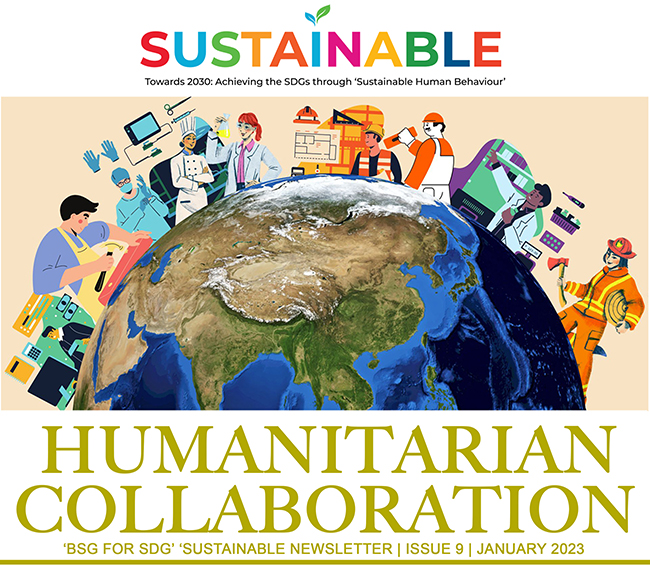
Greetings from BSG Chairperson Mr. Vishesh Gupta
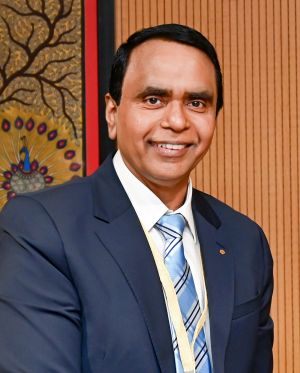
Dear readers,
I extend warm festive greetings to you and your families. In these challenging times, as conflicts persist across continents, the significance of uniting with our loved ones and drawing strength from each other’s love has never been more profound. I hope and pray that you all are able to cherish quality time with your loved ones during this festive month, creating lasting memories of love and solidarity.
The 31st of October is marked as World Cities Day, and the 26th of November is celebrated as World Sustainable Transport Day by the United Nations. Further, the UN Climate Change Conference COP28 commences on 30th November, and the need for climate action in cities is also expected to be top on the agenda. With these important dates in mind, the theme for the November 2023 edition of the ‘SUSTAINABLE’ newsletter revolves around the vital topic of building sustainable cities. This theme aligns with SDG 11, Sustainable Cities & Communities.
While it is often perceived that the responsibility for building better cities falls solely on the government, sustainability necessitates a collective effort from all stakeholders. It calls for a change in our behaviour and the adoption of a sustainable lifestyle. It requires each one of us to embrace sustainable human behaviour.
At Bharat Soka Gakkai, we are taking small steps to contribute to the creation of sustainable cities. Last month, we launched the ‘BSG 25-Tonne Plastic Collection Drive’ in the Delhi-NCR region. The drive aimed to collect plastic waste from households between the 3rd and 9th of October 2023, with a target of gathering 25,000 kilograms of plastic waste and responsibly sending it for recycling, rather than allowing it to end up in landfills.
The primary purpose of initiating this plastic collection drive was to inspire a transformation in people’s behaviour and provide a platform for our members to learn to live sustainably. I am delighted to share that the collection drive exceeded our expectations, with 27,726 kilograms of plastic waste collected and sent for recycling, thanks to our partners, Bisleri’s Bottles for Change and Blue Nudge. Additionally, this drive brought about a significant shift in the way BSG members and their friends, family, and all those they engaged with for the campaign, now use plastic more responsibly and mindfully in their daily lives.
Close to 20,000 individuals actively engaged in the collection drive and have since committed to a sustainable way of life. This commitment exemplifies BSG’s overarching mission across all its endeavours.
It is my hope that this edition of the ‘SUSTAINABLE’ newsletter serves as a source of inspiration, encouraging you to adopt sustainable human behaviour, thus contributing to the realisation of a sustainable city.
I extend my gratitude for your precious time in reading through this newsletter. I eagerly look forward to receiving your thoughts and feedback.
Warm Regards
Vishesh Gupta
Chairperson, Bharat Soka Gakkai
A sustainable city, often referred to as a green city or an eco-city, is an urban area that consciously focuses on and works towards achieving the triple bottom line (TBL). This means it makes positive contributions to the environmental, social, and governance aspects of sustainability. Sustainable cities are meticulously designed to nurture, protect, and preserve the environment, promote inclusivity among all residents, and create ample opportunities for sustainable economic growth and development while safeguarding the well-being of future generations.
As of 2020, our planet is home to over 10,000 cities, and many more emerging as time progresses. As per a UN report, more than 512 cities globally boast populations exceeding 1 million, with an average population density of 1,500 people per square kilometre. By 2030, this number is only expected to increase further.
The UN also reports that over half the world’s population, more than 4.2 billion people, currently resides in urban areas, a figure projected to reach 70 percent by 2050. At present, approximately 1.1 billion people live in slums or slum-like conditions within cities, with an additional 2 billion expected to join them in the next 30 years.
Despite occupying only 2 percent of the Earth’s terrestrial surface, cities consume over 75 percent of natural resources and account for more than 70% of the global greenhouse gas emissions. Furthermore, most cities face vulnerability to at least one type of natural disaster.
Sustainable cities play a pivotal role in mitigating these negative impacts on the environment and humanity. They achieve this by emphasising waste reduction, energy conservation, and pollution control, contributing significantly in the fight against climate change.
These cities also focus on:
Quality of Life: Prioritising green spaces, clean air, and efficient public transportation, to enhance living conditions for residents. Walkable neighbourhoods and accessible amenities elevate overall quality of life.
Social Inclusivity: Striving for equal access to resources and services for all residents, promoting diversity and inclusion to ensure everyone benefits from development.
Economic Prosperity: By fostering sustainable practices, cities create opportunities for green jobs and economic growth. Investment in sustainable infrastructure, such as renewable energy and energy-efficient buildings, yield long-term savings.
Individual Responsibility: Building sustainable cities is not the exclusive responsibility of the government. Individuals play a vital role by making eco-conscious choices in their daily lives. Simple actions, like waste reduction, water conservation, and public transport use, collectively contribute to a city’s sustainability.
Imagine each city as a household. Just like managing a household budget, cities must manage their resources wisely. A sustainable city resembles a well-organised home with energy-efficient appliances, responsible waste disposal, well-tended natural spaces and the dignity of all lives in a household being well respected.
It is imperative to recognise that cities are composed of individual households, for a city to transform and become sustainable, each household and each individual must adapt their behaviour to embrace sustainability.
Here’s a list of top 10 sustainable cities of the world as of 2022 as per the Sustainable Cities Index 2022.
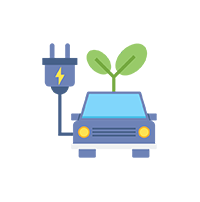
Sustainable Transport
All people, everywhere must have access to safe, affordable and clean transportation services to move around for work, education, leisure etc. Transport is a crucial driver of economic and social development. Transport infrastructure connects people to jobs, education, health care, and each other. However, the transportation industry also contributes to nearly a quarter of global CO2 emissions, 72% of which come from cars and other road vehicles (Ge & Wang, 2019). Each year, almost 185,000 deaths can be directly attributed to vehicular pollution (World Bank, 2019). In 2019, only half the world’s urban population had convenient access to public transportation, as per data from 610 cities in 95 countries (SDG Report, 2020).
Sustainable transportation refers to low- and zero-emission, energy-efficient, and affordable modes of transport, including electric and alternative-fuel vehicles, as well as domestic fuels (energy.gov). Some of the sustainable transportation solutions include electric buses, and trains and BRT systems that can carry people far more efficiently than cars. While electric cars pollute less and reduce individual carbon footprints, they still contribute to traffic congestion. Other ways to promote sustainable and green transport includes incentivizing cycling and walking.
Apart from being low-carbon emission and integrated, it must also be safe, affordable and convenient to enable maximum people to use it efficiently. This is because, gender, occupation, and age hugely determine the use of non-motorised transport (NMT). Women and individuals in the 18–34 years age group are more likely to use public transport and NMT options than men and individuals in the age group of 45 years or above, or are more likely to use private modes of transport (CEEW, 2019). The main barriers to the wider adoption of public transport relate to infrastructure, reliability, speed and availability of first/ last mile connectivity. Enabling sustainable transportation is an important marker for becoming a sustainable city.
 To Read
To Read
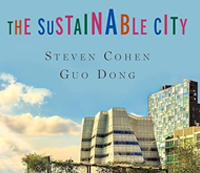
The Sustainable City
By Steven Cohen, Guo Dong
The Sustainable City provides a broad and engaging overview of the urban systems of the twenty-first century. It approaches urban sustainability from the perspectives of behavioural change, organisational management, and public policy, looking at case studies of existing legislation, programs, and public-private partnerships that strive to align modern urban life and sustainability. The book synthesises the disparate strands of sustainable city planning in an approachable and applicable guide that highlights how these issues touch our lives on a daily basis, including the transportation we take, the public health systems that protect us, where our energy comes from, and what becomes of our food waste.
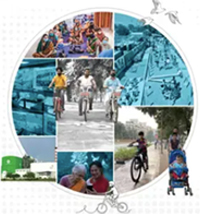
Smart Cities Mission, India: Localizing Sustainable Development Goals
This recent report by the Ministry of Housing and Urban Affairs, and UN Habitat examines the transformation of 100 cities across India as part of Smart Cities Mission (SCM).

21 Circular Economy Solutions: Changing How We Eat, Live And Travel For A More Sustainable World
This article shares 21 practical tips on how each of us as individuals can modify our daily behaviour in terms of how we make, keep and discard things in order to build more sustainable systems and a circular economy.
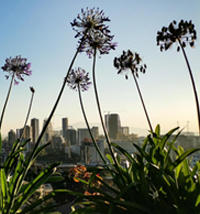
5 Reasons Why Cities Deserve The Spotlight At The Upcoming UN Climate Change Conference (COP28)
Here is an interesting article by the United Nations which shares 5 reasons why cities deserve that spotlight at COP28. Cities are a major contributor to climate change. Activities in cities are responsible for 75% of global greenhouse gas emissions. Further, cities are increasingly being adversely impacted by climate change and disasters.
 To See
To See
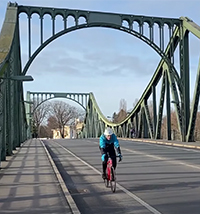
Explore 10 Of The World’s Most SUSTAINABLE Cities
Watch this video to find out which are the top 10 most sustainable cities in the world as of 2021, and how they achieved that position.

OECD Green Talks: How Green Is Household Behaviour?
In this webinar by OECD, the panellists discuss the impact of household choices and individual behaviour on the environment and climate change, highlighting the challenges governments face in promoting sustainability. It introduces the OECD report “How Green is Household Behaviour? Sustainable Choices in a Time of Interlocking Crises,” which presents findings from the 2022 OECD Survey on Environmental Policies and Individual Behaviour Change (EPIC) across nine countries and four key areas.

Making It Personal: How Behavioural Change Can Tackle Climate Change
The pressing climate crisis demands that nations swiftly share insights, tailor solutions to their unique contexts, and take courageous steps in enacting policies that combat emissions and enhance well-being. In this video by the World Bank, Prime Minister of India – Narendra Modi and World Bank Group President David Malpass, explore how behavioural science provides fresh perspectives and unconventional instruments for policymakers to enhance the efficacy of interventions, ensuring their success in tackling climate challenges.
 To Listen
To Listen
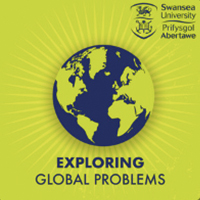
Traffic, Transport And Our Behaviour – A Podcast With Prof. Ian Walker
In this episode of ‘Exploring Global Problems,’ Professor Ian Walker from Swansea University, UK, delves into the concept of ‘Motor Normativity.’ He examines the automatic and often unconscious behaviours related to driving habits, exploring the resistance encountered when advocating for changes like reducing driving and adopting cleaner modes of transportation. Professor Walker’s insights, rooted in his own experiences as a cyclist, shed light on the challenges of challenging the established norms in the world of transportation.
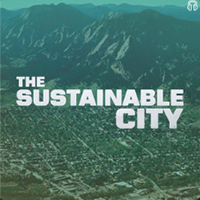
The Sustainable City – A Podcast Series By William Shutkin, Andrew Bush
Join Andy Bush and William Shutkin as they discuss bold ideas and innovations for green, equitable and climate-friendly cities with the people making them happen. The Sustainable City Podcast addresses critical questions like, How do we build a zero-carbon city? In an automobile-obsessed culture, and with EVs on the march, are car-free communities even possible in the US? And, do green cities inevitably mean gentrified cities, only for the rich?
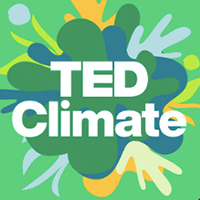
TED Climate
In this podcast series by TED, host Dan Kwartler unpacks the problems and solutions behind big systemic issues in bite-sized episodes. The podcast also shares little ways we can make changes in our daily life, in our towns and cities, and at our workplaces to help address climate change. This podcast brings a focus on solutions, instead of just the problems.
 To Play
To Play
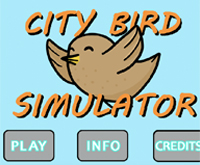
City Bird Simulator
In this fun game, players navigate a cute little bird through clouds of smoke coming from factories to fetch food and return home safely. The message: Over 1.5 billion birds have died in the last 40 years due to air pollution. What if we could switch to renewable sources of energy…?
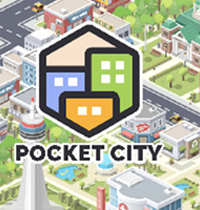
Pocket City
In this popular mobile simulation game, developed by Codebrew Games, the player roleplays as a city mayor to create residential, commercial, and industrial zones; build parks and recreation spots, respond to disasters and crime. A fun way to learn what it takes to make a city come alive!
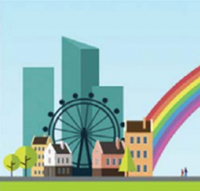
Traffic Snake Game Project
The Traffic Snake Game Network (or TSG) is a campaign that originated in 2014 in Belgium, and over the years, it spread to various other countries across the EU. The aim of this project has been to modify behaviour and encourage school children, parents and teachers to walk and cycle to school. This project is promoting sustainable transport modes and a less car-dependent lifestyle through the form of a fun game. This project can be replicated by any school or family, to instil the importance of using sustainable transport over convenient transport.
While the SDGs are global goals, in order to achieve them, each country must take concrete action. Further within each country, this requires significant bottom-up support, at the local level. Cities are a critical local unit, where various stakeholders, including citizens have a major role to play in achieving the SDGs.
When discussing the issue of climate change, in his 2016 Peace Proposal, SGI President Ikeda highlights that in addition to intergovernmental cooperation, the world’s cities work together on climate action. Sharing the role of cities, he writes:
“Although the world’s cities only occupy 2 percent of the Earth’s land area, they account for 75 percent of carbon emissions and more than 60 percent of energy consumption. While this means that cities’ environmental footprint is disproportionately large, it also reflects the reality that if cities change, the world will change.
“Certainly, the density of urban populations means that problems are concentrated in one place, as is the ecological burden. By the same token, however, this density can facilitate the effective implementation of energy efficiency measures and the adoption of renewable energy sources in the shift toward a low-carbon society.”
President Ikeda has often written about the SDGS as goals that can be taken up as a personal commitment by individuals, and goals that can make people feel inspired to work towards their achievement. Highlighting the SDG of Sustainable Cities, he also shares in his 2016 Peace Proposal: “Because the accumulation of efforts undertaken in one’s immediate surroundings can generate important positive impacts on the global environment, this theme of sustainable cities can demonstrate to people that their efforts are important and thus stimulate a sense of accomplishment and pride.”
Further, in his dialogue with German environmentalist Dr. Ernst Ulrich von Weizsäcker, President Ikeda when discussing the topic of how cities can transition towards sustainability, and highlighting the role of action by ordinary citizens says:
“To reexamine our behaviour and culture as consumers and rediscover the true value of happiness in the process of this reexamination; to find fulfilment in working with our neighbours to tackle environmental issues and drawing upon it to better our lives; and for this sense of fulfilment to serve as a foundation for the continuity of our civic action—these are the driving forces that will enable us to make the transition from a resource-wasting society to a resource-recycling society.”
And in his 2011 Peace Proposal, President Ikeda writes: “The confidence and joy of knowing that our daily action, dialogue and engagement are moving the world in a better direction – this unleashes hitherto unimagined energy and power from within people’s lives. We are moved by the knowledge that each of the world’s seemingly ordinary individuals can be a protagonist in the creation of a new era. No force can match that of a fundamental transformation in the human spirit.”
Thus, as ordinary citizens we must see cities as a stage to enact our own unique roles as protagonists of change towards the achievement of SDGs. President Ikeda shares: “It is not about how others behave or how society is. The most important thing is to ask yourself, “What should I do?” and “What can I do?” One who stands up with moral courage and conviction can change society and create waves of transformation around the world.”
Joyfully Trailblazing In The BSG 25-Tonne Plastic Collection Drive Sona Gombar | Women’s Division | Gurugram
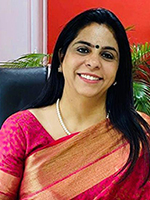
I have been associated with the education sector for the past 17 years and am currently working as the school head in one of the Pre-Primary Schools in Gurugram. I had joined Bharat Soka Gakkai as a voluntary member in 2007.
Being a member of BSG, I have always striven with a desire to create the greatest value for all people around me and for my community through the work that I do and through my own conduct and behaviour.
When BSG announced the ‘BSG 25-Tonne Plastic Collection Drive’ in October 2023, initially, I was clueless about what I would do. But armed with a desire to not let this opportunity go by, and to contribute to the transformation of my city, I made a fresh determination and attended the launch meeting of the BSG 25-Tonne Plastic Campaign with a seeking spirit. I felt extremely inspired to go all out to combat the plastic menace and enable people around me to be a part of this initiative.
I educated my house maid on segregating plastic waste. I also informed other families living on two other floors of my building. I took the action points from the BSG campaign material and followed the 5 steps of SE–WA–DE–CO–RE, that is, segregating, washing, depositing, collecting and recycling. I managed to collect 4 kgs of plastic in three days. But that wasn’t enough for me. I wanted to do more!
I was determined that no matter what, I have to take all necessary steps to make the most significant causes to heal Mother Earth. I conducted dialogues with fellow BSG members and attended all meetings related to the ‘BSG 25-Tonne Plastic Campaign’. This helped keep my spirit charged. Eventually, as a district, we could collect 15 kg of plastic waste.
Being an educator, I now decided to tap my workplace. I thought of involving the youngest learners of my school.
I started thinking of ways to spread greater awareness about plastic and raise AGENTS OF CHANGE in my school and set a fresh target of collecting at least 100 kgs by the collection date.
I started sending regular communication to the parents through messages and videos on plastic segregation. Special assemblies were organised to sensitise the students and the staff about their role in making this world a better place to live in.
Everyday I went to all classes to encourage students to bring plastic waste from home. After a long weekend, the school reopened on October 3rd, and I was delighted to see bags full of plastic waste being deposited at the school premises. I could feel the joy and enthusiasm that the students were showing, who shared in their enthusiastic voices, “Ma’am, I brought plastic! There will not be any plastic on our land; we’ll make the earth plastic-free.” My heart swelled with pride as I saw their energy and carried those plastic bags which were bigger than their height. That day, we collected 85 kg of plastic.
The next morning, I circulated another communication with the intention of leaving no one behind. The next day, my premises was flooded with plastic coming from all corners, be it teachers, students, support staff – everyone was carrying plastic waste in their hands.
I am happy to report that my school has contributed 170 kgs of plastic waste. Even the parents shared messages of appreciation with the class teachers for the school taking such noble initiatives.
I’m determined to create more causes to build a solid foundation, nurture and impart great values to all students in my school and to take concrete steps to realise the 17 SDG goals by adopting sustainable practices both inside the school and throughout the local community.
Taking Lead In Renewable Energy And Green Fuels To Benefit All Humankind Piyali Das | Women’s Division | Delhi

I became a voluntary member of the Bharat Soka Gakkai in 2004 when my son was 9 months old and I took charge of my son’s life as a single mother. It was an extremely difficult situation in my personal life, but owing to the warmth and encouragement of the Soka Gakkai, I was able to build a resilient self and lead a life of value creation. Gradually, I was able to truly understand the purpose of my existence, and determined to lead a contributive way of life for bringing about a transformation in society.
I am a scientist by profession and work in the field of renewable energy and alternate transport fuel with one of the most prominent research institutes in Delhi. Additionally, I am also working as an Adjunct Professor in the Department of Sustainable Engineering of a leading university in Delhi.
The global concern for energy and climate security issues made it imperative to explore the production of clean fuel from renewable sources in a sustainable manner. Advanced biofuels do not rely on fossil resources, and thus, present a renewable alternative to conventional petroleum-based fuels. To achieve sustainability and address climate change issues, my organisation’s Advanced Biofuels Division focuses on development of clean technologies for biofuel and bio-commodity production from second- and third-generation feed as well as renewable sources such as waste agro residues, algae, aquatic plants, and used cooking oil (UCO), industrial wastes/effluents, waste plastics etc. Today, innovation and demonstration of self-sustainable integrated waste to wealth technologies are of tremendous importance under Government of India’s “Smart Cities,” “Unnat Bharat,” “Atma Nirbhar Bharat”, and “Swachh Bharat” initiatives for a zero-waste generation concept.
At my workplace, I am working on technology development in four major areas:
- Sustainable and Renewable advanced biofuels (biodiesel, pyrolysis oil, sustainable aviation fuel, green marine fuel etc)
- Biochar/Green Carbon for soil fertility improvement/organic farming & CO2 absorbing materials
- Bio-Plastic from renewable and waste sources and
- Green chemicals from Industrial wastes.
All these technologies use a circular economy approach for zero-waste generation. I have developed patented technologies which are being upscaled to demonstration scale and ready to be adopted by Industries in near future.
I have also innovated indigenous technology for making alternate fuels from waste agricultural residues through the pyrolysis process. This patented pyrolysis technology has been developed with the financial support from the Ministry of New and Renewable Technologies, and it is a sustainable solution to drastically reduce air pollution caused by stubble burning. Presently under the Centre for High Technology, Ministry of Petroleum and Natural Gas (MoP&NG) I have been working on catalytic upgradation of these pyrolysis oils for possible refinery integration in collaboration with one of India’s leading oil refineries. This technology also has the potential to be used as a solution for plastic and electronic wastes.
At the sustainable agriculture front, I have been working on different renewable carbon/biochar production which is used for soil amendment for organic farming.
At the green chemicals front, I am working with some national and international industries where the industrial wastes/effluent generated are converted through our indigenously developed technological interventions to green chemicals of industrial interests. Through these technological innovations and intervention, the overall CO2 footprint of these industries are getting reduced significantly.
Recently, one of the technologies I have developed, which helps make green aviation fuel from agricultural residues, got selected for funding under the National Sustainable Aviation Fuel Call.
At the water transport front, India is the 16th largest maritime country in the world with a long coastline of ~7,517 km. Maritime Vision Document 2030, released by Prime Minister Narendra Modi is a 10-year blueprint on India’s vision of a sustainable maritime sector and vibrant blue economy. In March 2023, my institute became the first National Centre of Excellence on Green Port and Shipping. This centre will empower ‘Make in India’ in ports and coastal and inland water transport and will play a pivotal role forward as the world comes together to tackle climate change through green shipping.
There are few other technologies that I have developed to make green chemicals and fuels using waste materials, which are under consideration by some reputed industries who have shown interest to commercialise the technologies for the benefit of the society and more precisely, contribute to the larger goal of net zero commitment of India towards 2070.
I am truly determined to create the greatest value in the field of renewable energy and green fuels to benefit all humankind.
 SDG Tip for Daily Life
SDG Tip for Daily Life
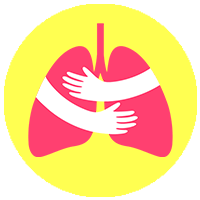
How Can Individuals Help Achieve The Targets For SDG 11: Sustainable Cities & Communities
Here are some practical tips and suggestions on how all of us can adopt sustainable human behaviour in our daily life to build sustainable cities:
- Initiate community activities to build a sense of belonging and vibrancy and build your community the way you want it to be.
- A simple step like waste segregation in households and composting of organic waste in cities can lead to multiple benefits in terms of reduced energy use for transportation, encourage growth of green areas in local societies, reduce air, land and water pollution from landfill sites as well as lead to reduce the use of virgin material in production.
- Try to use public transport, or sustainable transport, wherever possible, to reduce pollution. Carpool, bicycle, walk.
- Preserve the green spaces in your community by ensuring no littering and no vandalising.
- Ensure all personal vehicles are well serviced to keep emissions at a minimum.
Find out more such practical tips on the ‘BSG for SDG’ mobile app and website
Make simple changes in your daily life, make a pledge to live sustainably and support your environment.
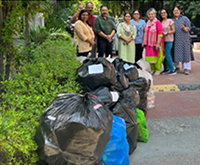
Updates
Bharat Soka Gakkai Holds A ‘BSG 25-Tonne Plastic Collection Drive’
From 3rd to 9th October 2023, Bharat Soka Gakkai (BSG) spearheaded an astounding plastic collection initiative in Delhi-NCR. In just seven days, an impressive 27,726 kilograms of plastic waste was gathered from households and responsibly sent for recycling, underscoring the community’s unwavering commitment to combating plastic pollution and promoting sustainable practices.
Read more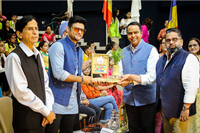
BSG Holds The Grand Finale Of The Schoolathon On Sustainability 2023 Competition
After almost ten months of intense labour, planning and coordination, the remarkable journey of the ‘Schoolathon on Sustainability (SOS)’ competition 2023, a collaborative effort between Bharat Soka Gakkai (BSG) and Manav Rachna Educational Institutions (MREI) came to a successful close on 7th October 2023. This initiative was designed to inspire critical thinking and innovative sustainability solutions among the younger generation. In the end, 12 winning teams emerged, with each team receiving a cash prize of INR 50,000 from sponsors.
Read more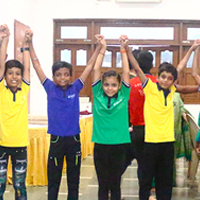
Bharat Soka Gakkai Supported Underprivileged Students From GyandeepGrowth Foundation (GGF) To Present A Skit On Climate Change
Volunteers of BSG held multiple weekly training sessions between July-September 2023 with underprivileged students from Gyandeep Growth Foundation, New Delhi, and supported them in preparing a skit on SDG 13, Climate Action for their Founder’s Day Function, which was held on 16th September 2023.
Read more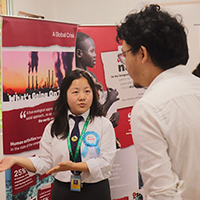
BSG Hosts The SOHA Exhibition And Forms SDG Clubs At Various Educational Institutes
The ‘Seeds of Hope & Action (SOHA): Making the SDGs a Reality’ – a sustainability focused exhibition was organised by BSG at various educational institutes, including: Galgotias University, Greater Noida; St. Thomas’ Girls Sr. Sec. School, New Delhi; among others. BSG has conducted a total of 91 SOHA Exhibitions across schools and colleges till date.
SDG Clubs were also formed by BSG in 2 additional institutes, namely, St. Joseph’s School, North Point, Darjeeling & SRM University, Gangtok. With this, the total number of SDG Clubs formed by BSG goes up to 18 till date.
BSG is conducting the SOHA exhibition and forming SDG Clubs in institutes with a vision to advance ‘Sustainable Human Behaviour’ among the students, and to foster a culture of sustainability among the younger generation.
Read moreContact Us
 Any queries or suggestions regarding the newsletter can be addressed to sdg@bharatsokagakkai.org
Any queries or suggestions regarding the newsletter can be addressed to sdg@bharatsokagakkai.org
 To know more about the ‘BSG for SDG’ initiative, visit the BSG for SDG website
To know more about the ‘BSG for SDG’ initiative, visit the BSG for SDG website
 Download the ‘BSG for SDG’ mobile app with the carbon footprint calculator
Download the ‘BSG for SDG’ mobile app with the carbon footprint calculator
